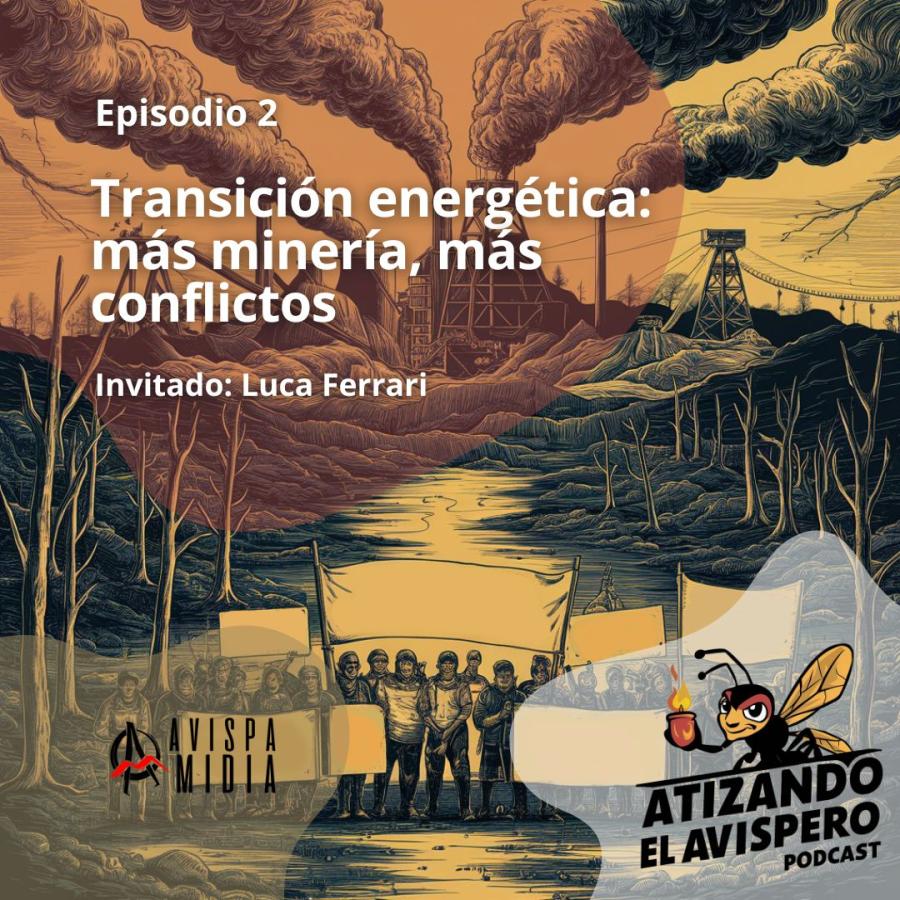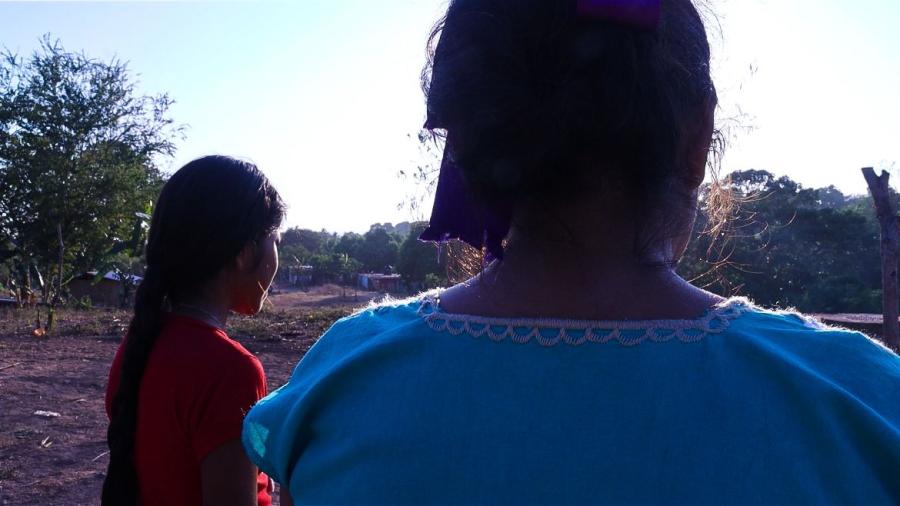To promote a deep transformation of the State, as well as the social, political, cultural and economic relations with indigenous peoples, to satisfy their demands for justice" is the first joint government-EZLN proposal in the San Andrés Accords. One of the key consequences of the recognition of indigenous peoples as collective legal entities is the need for a multicultural reform of the State.
The recognition of indigenous rights, the leitmotif of the San Andrés Accords, is in essence the recognition of the peoples' rights to exercise power in different ways and levels. This involves the construction of a social pact that breaks their political exclusion and which permits the peoples to participate in decision-making processes from the community to the national level.
That's why the resistance to the recognition of indigenous rights is so tenacious; there is opposition to a process of redistribution of power that would permit their reconstitution as peoples -- their social and political rearticulation, consolidation and reviabilization, which would break the archaic forms of State domination and would even contest the big business expansion into the natural resources in indigenous regions.
The depth of the indigenous demand comes from being a social movement whose logic cannot be digested by the old mechanisms of State co-optation and assimilation, because it presupposes the reform of the State itself. Such a reform cannot simply add indigenous rights on to an ethnocentric, monocultural, homogenizing State apparatus, but instead requires a transformation of the State as a whole, including its legal order. For that reason, indigenous rights are, above all, political rights, and their expression requires fundamental constitutional guarantees.
When the agenda of Mexico's transition to democracy seemed closed, the indigenous movement, catapulted by the Zapatista uprising, made the multicultural nature of the country visible and showed that the construction of a democratic order in Mexico also required indigenous peoples' rights. That is, it is not enough to have clean elections, a division of powers, and alternating governments, democracy also requires autonomy for its peoples as much as for its citizens -- a democratic order with cultural pluralism. This pluralism is not limited to options within a single cultural framework, but rather should accept diverse frameworks, the shared platform of coexistence based on mutual respect and the construction of mechanisms for cross-cultural dialogue.
We are facing one of the Mexican state's most important structural challenges of this century. The indigenous peoples, in spite of huge obstacles, have managed to convert themselves into a new political actor in the country, and at this point the reform of the State, governability, and political stability are unthinkable with fundamentally resolving their demands. Those who think that the indigenous issue is temporary and is only related to the Zapatista uprising are fooling themselves. On the contrary, it is a structural issue and one of national interest.
Against this backdrop, the Mexican government's National Indigenous Institute is now fifty years old. The San Andrés Accords do not deal in depth with the need to transform public institutions for the simple reason that they were only the beginning of a broader negotiation process and because they focused on the point of departure for everything else, the recognition of indigenous peoples as collective legal entities.
Nevertheless, the San Andrés Accords do presuppose the transformation of the public sector, and the INI in particular, but within the framework of the reform of the State as a whole. The San Andrés Accords commit the INI to begin the process of transferring their radio stations to the indigenous communities -- which to this date has not happened -- but more generally one could argue that the logic and the contents of the Accords place the INI and "indigenismo," insofar as it is a State doctrine, in a terminal crisis.
It would be useful to carry out a serious, balanced evaluation of the INI's fifty years, of the partial shifts and adaptations of its conception and practice, of the occasional usefulness it has had for indigenous communities and organizations, but also of its links with patrimonial and clientelistic power-holders. Clearly, however, the Mexican State's institutions created to deal with indigenous peoples are conceptually obsolete in at least four ways: the integrationism that attempts to assimilate them into the hegemonic culture, the "pluralism light" which recognizes diversity as a mere cultural fact that does not translate into recognized, tangible rights; the political marginizalization that delegates the whole State's responsibility towards indigenous peoples to one institution that lacks the necessary legal authority, resources or political weight, and the tutelary autonomy, which does not recognize the peoples and their communities as autonomous social actors, but rather as a population who only have the right to be consulted -- while the institution itself retains control over the resources and the substantive decisions. It is very difficult for an institution that is not autonomous to respect indigenous peoples' autonomy.
This is why the transformation of the institutions, in terms of indigenous rights, goes far beyond the INI - it involves the public sector as a whole. Just as the national legal order cannot recognize the multicultural issues without at the same time transforming itself, the State cannot reflect nor guarantee the new balance of power that accompanies the recognition of indigenous rights without including the nation's cultural diversity as a core principle. More than an adaptive reform of the INI, what is needed is the construction of new institutions in the indigenous rights paradigm.
If we conceive of rights both in terms of peoples' concentrated power to deal with the State and third parties, and at the same time in terms of the exercise of rights guaranteed by the State, the need to construct institutions to promote and defend the exercise of those rights is clear. The full recognition of indigenous rights -- not caricatured or miniaturized -- would close one chapter in history and open another. It would close the chapter of integrationism, developmentalism and welfarism, including the institutions and worldviews responsible for those policies.
However, this does not mean that the indigenous agenda is a strictly a legal agenda, but rather that rights are the guarantee and the instrument for indigenous demands as a whole. The issues of development, social services and the State's obligations should be discussed in the context of rights and not instead of them. Peoples' rights to decide are the basis for jointly designing policies with them, to break the cycle of political exclusion and material pauperization, and to accompany them with the public resources necessary to deal with -- from their own cultural perspective -- the challenge of poverty and to open up spaces for new economic alternatives.
This is why resources and rights should not be counterposed to one another. Both are indispensable. The rights should be accompanied by the resources that are essential for reversing their current disadvantage, while at the same time, these resources should be planned, transferred and allocated within the framework of the rights of the peoples. The indigenous agenda is to have both resources and rights, not one or the other.
The central challenge is to break the State's exclusion of indigenous peoples. The INI represents this exclusion, both in terms of its budget and its political weight. In the name of integration, the indigenous peoples paradoxically ended up reduced to residual access to social policies. The rest of the public sector institutions ignored their responsibilities towards indigenous peoples, "because that's what the INI was for." The new institutional structure cannot reproduce the INI's marginality. The promotion of indigenous rights involves creating the effective linkage capacity, so that the multicultural approach permeates the State as a whole, and not just some small agency. For this to be possible, the new institution must be, like the peoples themselves, autonomous -- part of the State, but not an instrument of the government. Its role should be determined not by the political interests of any particular administration, but rather should have constitutionally recognized powers and be effectively supervised by the indigenous peoples and citizens in general. This institution should be conceived as a process that accompanies the strengthening of indigenous autonomy, and should increasingly transfer authority and resources towards organs of indigenous governance.
It might seem contradictory to speak of both indigenous autonomy and new state institutions at the same time. It is not. The two can complement one another. The alternative view would imply that indigenous autonomy should mean that the peoples get along as best they can, and the State has no responsibility towards them. The real contradiction would be to recognize indigenous autonomy without a reform of the State, to try to create multicultural enclaves within an ethnocentric State.
There is no partial solution to indigenous demands; either the State as a whole is reformed or the true recognition of indigenous rights will not be possible. At the same time, Mexico's political transition will be incomplete and precarious as long as we are unable to construct the rule of law with a multicultural face, a political order for all citizens and all cultures.
Pablo Yanes is an economist specializing in indigenous rights and a member of the Red de Abogad@s por los Derechos Indígenas (Lawyer's Network for Indigenous Rights). Until June, 1998 he was subdirector of legal anthropology for the National Indigenous Institute.
Article copyright Cultural Survival, Inc.



